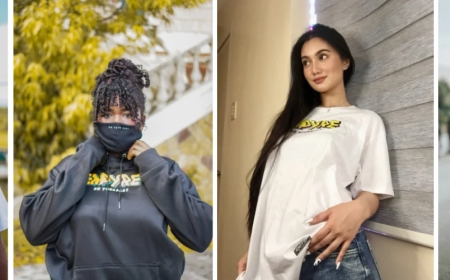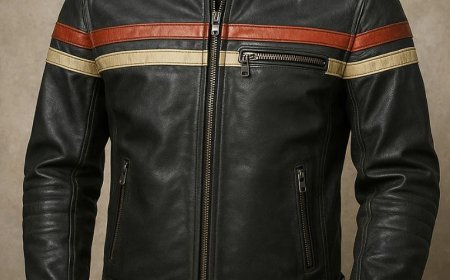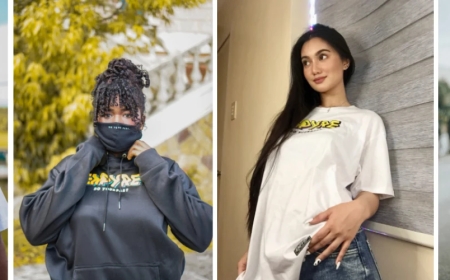Red Jacket Tv Series
Red Jacket TV series follows the dynamic team at Red Jacket Firearms, crafting custom guns with passion and precision. Drama, skill, and firepower collide!

The Legacy and Impact of Red Jacket TV Series: A Journey Through Guns, Grit, and Drama
Television has a way of capturing real-life professions and turning them into compelling entertainment. Over the years, reality TV has explored everything from fishing in icy waters to digging for gold in the desert. Among these rugged, blue-collar shows, one series stood out for its no-nonsense approach to custom firearms: Red Jacket TV Series.
This show didnt just chronicle people at workit delivered a raw, adrenaline-pumping look inside a Louisiana gun shop where creativity, conflict, and craftsmanship clashed in fascinating ways. At its peak, it drew millions of viewers who tuned in not just for the weapons, but for the human stories behind them.
In this article, lets dive deep into what made the show tick, its rise and fall, its impact on the gun industry, and the broader conversation about reality TV ethics. Whether you loved the series, never saw it, or just want to understand the cultural moment it represented, this story is about more than firearmsit's about ambition, business, family drama, and the allure of turning skill into spectacle.
Origins: A Shop in Baton Rouge Becomes a Star
Before the cameras showed up, Red Jacket Firearms was just another local gun business in Baton Rouge, Louisiana. Owned by Will Hayden, it specialized in custom builds and modifications. The shop had a reputation for creative solutionstaking surplus military weapons and reimagining them for civilian collectors or practical use.
What caught producers eyes was the combination of expert craftsmanship and colorful personalities. This wasnt a corporate gun maker churning out thousands of units. It was a small team working with their hands, solving complex engineering puzzles on a tight budget and schedule, with Southern humor and blunt disagreements keeping it lively.
That premise proved irresistible for the Discovery Channel, which was riding high on shows about tough, niche trades. When the series debuted in 2011 under the title Sons of Guns, it immediately stood out for its focus on real builds rather than just buying and selling.
The Format That Hooked Viewers
Unlike other reality shows that simply followed store employees around, Sons of Guns (what most people know as the red jacket tv series) leaned hard into the process of design and fabrication. Every episode was built around a project: maybe restoring a World War II machine gun, or building a flamethrower attachment that wouldnt blow the users hands off.
The show gave viewers a taste of engineering challenges most people never think about:
-
How do you convert a classic weapon to semi-auto to comply with the law?
-
Can you suppress a shotgun without wrecking its reliability?
-
Is it even feasible to mount a gatling-style barrel on an ATV?
These werent made-up plots. Customers really brought in these ideas, and the team had to figure them out on the fly. That combination of real technical problem-solving and dramatic, sometimes combative personalities made for compelling TV.
And it wasnt just about Will Hayden. The cast included his daughter Stephanie, known for being both capable and stubborn; master gunsmith Joe Meaux; and a rotating group of employees who brought expertiseand conflict. The dynamic felt authentic: family loyalty mixed with constant bickering, professional respect undercut by ego clashes.
Why It Felt Different from Other Reality TV
Part of what made the show a hit was its refusal to dumb things down completely. Sure, it had the hallmarks of reality TVdramatic music, manufactured tension in editingbut it also respected the complexity of its subject. Viewers learned about machining tolerances, ballistics, metallurgy, and federal firearms regulations in digestible bits.
It also rode the wave of Americas complicated relationship with guns. For many viewers, this was a patriotic show about exercising Second Amendment rights while showcasing American ingenuity. For others, it was a curiosityan inside look at a world they didnt understand, but found strangely compelling.
Either way, it was a rare example of a show that let skilled blue-collar work take center stage. The team might argue, but at the end of the day, they built amazing things. That sense of craftsmanship resonated with audiences tired of reality shows about petty feuds with no substance.
The Controversy and Collapse
Of course, no story about the series can ignore how it ended. The show was abruptly canceled in 2014 when serious criminal allegations against Will Hayden emerged. He was arrested and later convicted of multiple charges, including aggravated rape of minors.
Discovery immediately pulled the show from rotation, and Red Jacket Firearms distanced itself from Hayden entirely, firing him and rebranding. Fans were left stunned, and the brands reputation took a lasting hit.
It was a stark reminder of the risks in building a show around a single strong personality. When the central figure fell, everything else crumbled with him.
The Impact on the Gun Industry
Despite its ugly ending, the series had a significant impact on the gun industryparticularly for custom builders and small shops. Before it aired, most gun TV was dry and instructional, targeted at hardcore hobbyists. Sons of Guns made the idea of custom firearms work accessible and exciting to a mainstream audience.
Shops all over the country saw more customers coming in with ideas for custom builds. Manufacturers started thinking harder about the aesthetics and functionality of civilian models. Even YouTube channels and online gun communities took inspiration from the shows focus on documenting the build process in detail.
Some argue this was good for the industryshowcasing creativity and normalizing responsible ownership. Others worried it glamorized weapons and fed into a more militarized civilian gun culture. Whatever your view, theres no question the show had influence far beyond its modest budget.
Reality TV Ethics: Lessons Learned
Beyond guns, the series also served as a case study in the ethical challenges of reality TV. When you turn real businesses and real people into entertainment, you inevitably edit their lives for drama. Conflicts get heightened, personalities exaggerated. In some cases, dark secrets get overlooked until its too late.
The fallout from Will Haydens crimes wasnt just about one mans horrific actionsit also exposed how production companies and networks vet (or fail to vet) their stars. It forced TV networks to be more cautious, at least temporarily, about the kinds of people they gave platforms to.
Fans, too, were left to wrestle with a familiar dilemma: Can you still appreciate the shows artistry and entertainment value when the man at its center turned out to be monstrous? Theres no easy answer. But the question is worth asking, especially in an era when reality TV is often anything but.
Where Are They Now?
After the shows cancellation, Red Jacket Firearms essentially dissolved in its original form. Some of the cast went their separate ways. Joe Meaux, one of the shops standout gunsmiths, took over some of the business under new branding and has continued working in firearms manufacturing and design.
Stephanie Hayden largely stepped away from the spotlight, understandably given the personal trauma of discovering the truth about her father. Other employees have popped up occasionally in gun industry circles but never reunited for another show.
As for the fans, many remember the series with mixed feelings: nostalgia for the amazing builds, but disgust at the criminal revelations.
Conclusion: A Cautionary Tale with Lasting Influence
In the end, the red jacket tv series stands as one of the most memorable and controversial reality shows of its era. It offered viewers a window into real craft and engineering, celebrated small-business ingenuity, and arguably did more to demystify custom gun work than any other program.
At the same time, it was undone by the failures and crimes of its star, leaving a legacy thats complicated and, for many, tainted. Yet even in its downfall, it sparked important conversations about vetting, responsibility, and the dangers of turning flawed humans into TV heroes.
For those who watched, it remains unforgettable. A reminder that sometimes the line between reality and entertainment is much blurrierand riskierthan it seems.







































